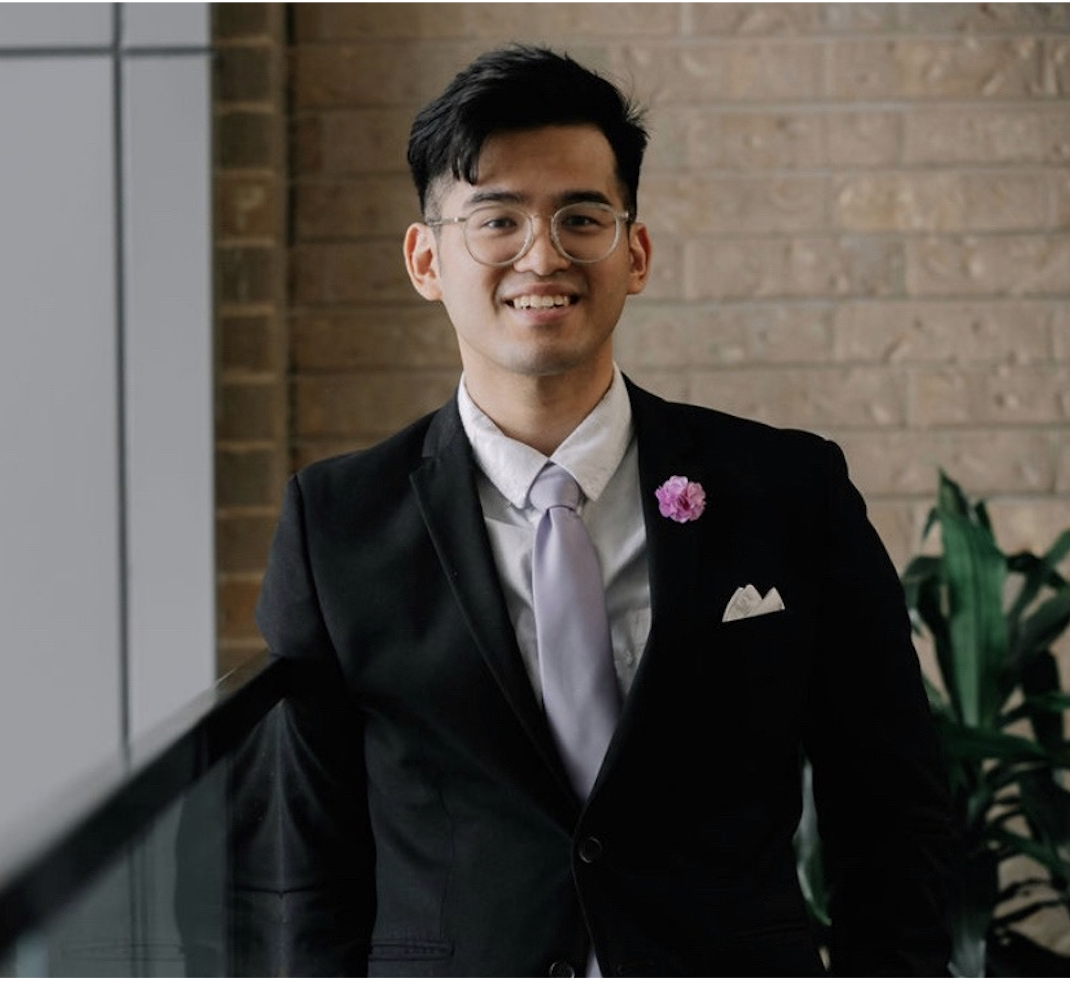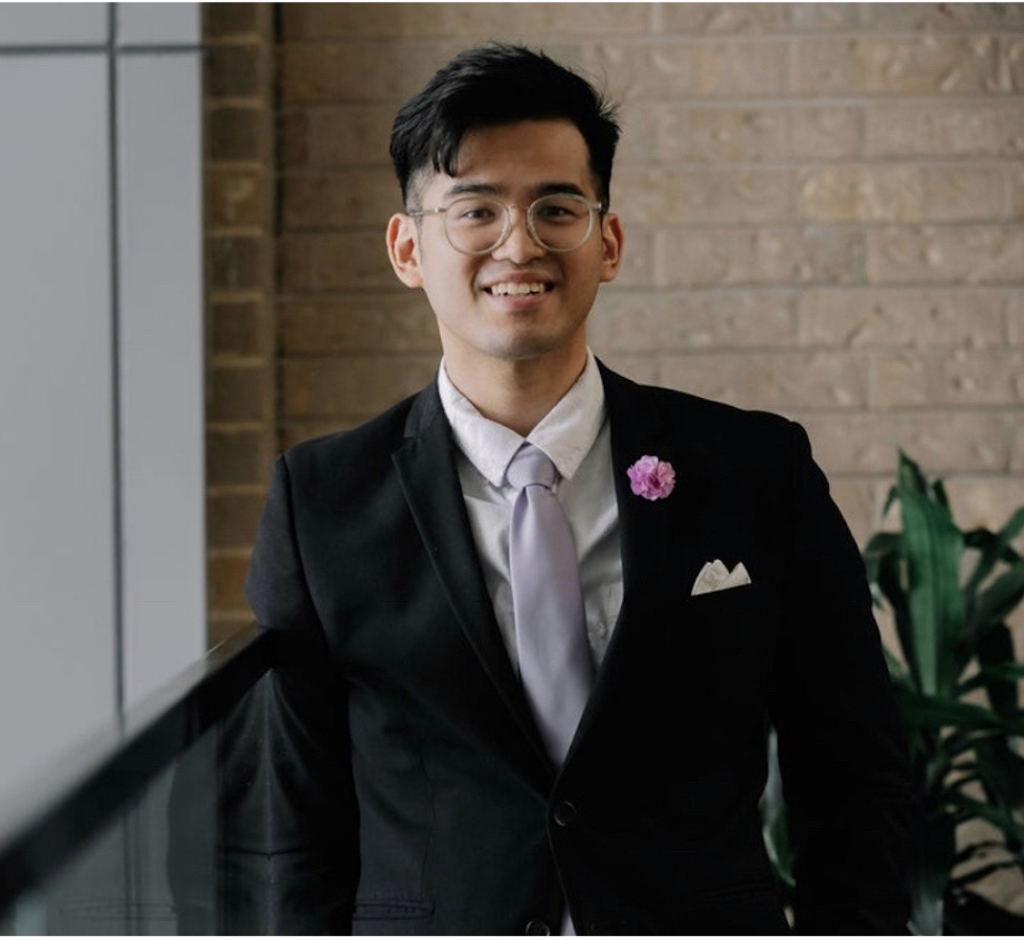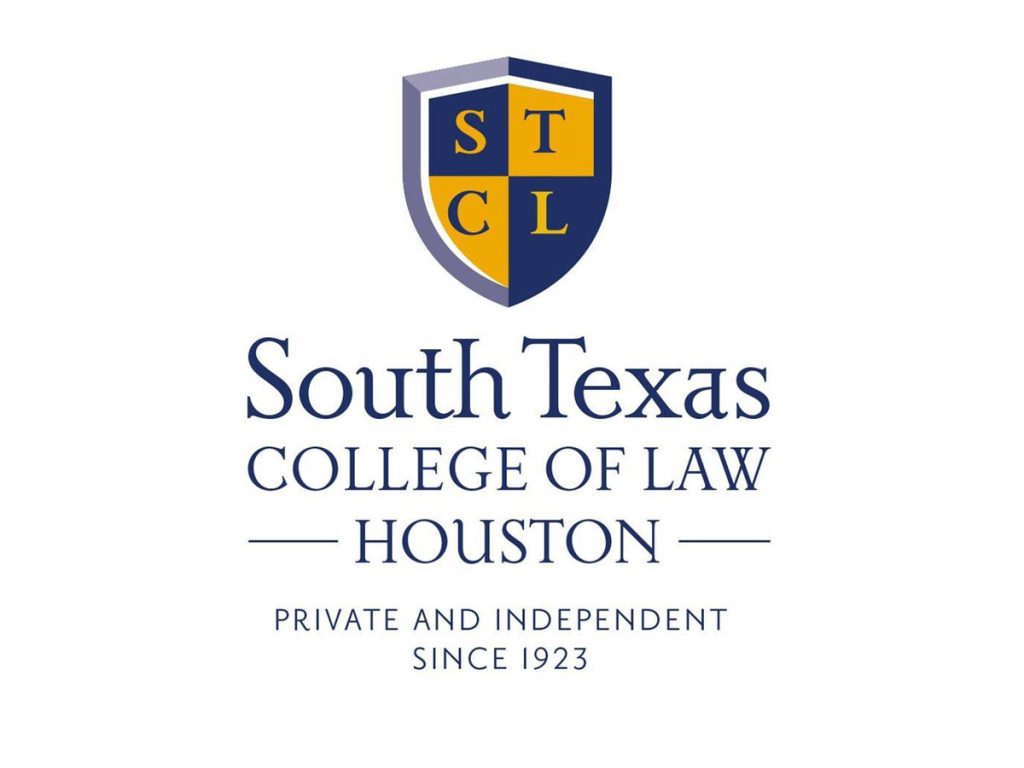 May marks Asian Pacific American Heritage month in the U.S. We are reminded each year of the contributions and stories of Americans whose beginnings are rooted in Asian countries and the nations of the Pacific.
May marks Asian Pacific American Heritage month in the U.S. We are reminded each year of the contributions and stories of Americans whose beginnings are rooted in Asian countries and the nations of the Pacific.
Recently, South Texas Law’s communications staff talked with Andrei Defino, the incoming president of the Asian American Pacific Law Students Association (APALSA). He immigrated to the U.S. with his family at age 5. He now calls Edinburg, Texas, his hometown.
After earning a bachelor’s degree in English from Andrews University in Michigan and contemplating a career in public policy, Andrei decided to attend law school. He currently is a 3L at STCL Houston, and, in addition to his leadership position with APALSA, he serves as an articles and notes editor for CURRENTS: Journal of International Economic Law and as associate editor for the Corporate Counsel Review.
Q: Why did you choose to attend law school — and particularly, why South Texas College of Law Houston?
A: Family and community, finances, and rigor were major decision-driving forces for my decision to attend STCL Houston.
I knew if I were to attend law school, it would have to be close to home. Going to school in Houston was always a top choice, as I have family ties here. Furthermore, STCL Houston gave me the most competitive scholarship compared to the other schools where I applied.
What made South Texas Law stand out, though, was its location in a big city, yet close to the people most important to me — coupled with its purpose to make the legal profession accessible, and its strong regional reputation. I think the legal industry should be subject to scrutiny. Historically, it was an elitist and homogenous field. Recently I learned that the law school has remained true to its mission of making the legal profession accessible. Even in its earliest days, South Texas Law joined the list of the few American law schools that enrolled women, even though women at the time were discouraged from getting legal jobs. For me, STCL Houston was the right choice. I now know that the school’s focus on progress, innovation, and inclusion continues to be affirmed through its expansive network of premiere lawyers, partners, and professionals across Texas and the nation.
Q: What is your vision for your role as incoming president of APALSA?
A: I definitely want to continue building on the momentum APALSA gained in the previous year. As a member of last year’s board, I know there was a consensus amongst APALSA leaders that the organization experienced a rebirth. This year, I hope APALSA can continue to grow its presence within our school community and to highlight the internal diversity in the Asian-Pacific community. Additionally, I hope APALSA’s presence can grow beyond our school’s walls so we can have a presence in local community projects and events, addressing the issues important to our people — as Houstonians, as Asian-Pacific Americans, and as budding legal professionals.
Q: What achievements or activities are you most proud of during your time at South Texas? Why?
A: The highlight of this past year was our Lunar New Year celebration. Seeing a community and our friends come together, and watching the project from birth to execution, made the event so emotionally fulfilling. It exceeded even our own expectations.
Q: How does having a diverse student population enhance legal education at South Texas Law?
A: I believe diversity in a community moves people forward because it encourages action, compassion, and empathy for the people who do not look like you or who have lived or currently live a life much different from yours. Furthermore, I believe one of the best drivers for growth and success is being able to sit in discomfort and learning to engage with ideas with which one disagrees. Even still, diversity without inclusion and equity is just virtue signaling.
Luckily, South Texas Law strives to be diverse and to be inclusive and equitable to all its students. Moreover, because diversity and inclusion have been at the heart of the school since its inception, you can truly feel it in the sense of community, support, and joy between the student body and faculty. That sense of support (for those who come from hardship and for those who come from privilege) really shapes STCL Houston students into professional, successful, and personable attorneys and summer clerks/associates.
Q: What have you enjoyed most about attending STCL Houston so far? Have any particular classes or professors stood out to you? Why?
A: Recently, I found myself agreeing with a post that said something along the lines of, “It’s not the destination or the journey, but the company that is important in one’s journey.” That is true of my experience at STCL Houston. I didn’t fully find my footing until my fourth semester of law school. Yet even during my first three semesters, it was the community I built that kept me encouraged. From supportive and accessible professors, understanding mentors and supervising attorneys, engagement in student organizations, and a study group whose members are some of my best friends now —these all played a substantial role in making my law school experience truly one for the books.
Being Asian, a member of the LGBTQIA+ community, and Christian, it was no surprise that First Amendment Law was a class I found most captivating. There was something about learning the substantive law protecting the ideas and concepts important to my identity that made the instruction feel more like watching an episode of Cosmos rather than an in-class lecture.
Q: What are your plans for after graduation?
A: From my experience working on the plaintiff and defense side, and in the public sector, I hope I can continue working with a litigation team. As I manifest passing the bar, I look forward to working with and learning from seasoned litigation teams as a colleague. In recent summers, I have learned so much supervising attorneys, and their support and feedback have shaped me to be a better student and employee.
Q: Tell us about your family and background outside of law school.
A: I come from a family of mostly medical professionals. Stateside, I believe I am the first in my family to pursue a non-medical related doctoral degree. For a time, I thought the medical field was the path for me, as well.
I am a first-generation immigrant. My mom, dad, and I emigrated from the Philippines to the U.S. when I was about 5. To this day, I attribute my penchant for reading and writing to my early years in America going through the stacks of public library books I would borrow to learn American English.
After graduating with my bachelor’s degree, and prior to law school, I worked in a Congressional office for two years. My experiences there, especially during a period of turmoil, helped solidify my plans to further advance my studies through attending law school so I could become a stronger advocate for others.
Q: What does the recognition of Asian American Pacific Islander Heritage Month mean to you?
A: Growing up in America, I did not know AAPI Month was an official holiday until I reached college. That is telling of the American zeitgeist during my youth. Back then, for so many Asians growing up in America, finding pride in our ethnic identities was not easy. Many Asian Pacific-Americans grew up living in the hyphen between Asia and America. For many, and for me personally, one could never feel Asian or American enough.
For a large part of the late 2000s and early 2010s, Pan-Asian Pacific American culture subsisted on a shared love for boba tea, anime, sometimes K-Pop or J-Pop, Asian American YouTubers, sports cars, dyed-blonde hair, high-top basketball shoes, cool haircuts, hip-hop and R&B, and the dreaded participation in local cultural dance troupes. Colloquially, this was the “AZN” culture. It was something we could all find a shared identity in — our sources of representation and distinction — within a space where many did not feel they could truly belong.
But that has shifted. I think America is catching up to something we Asian Pacific-Americans always knew: Asians are not a singular identity. We are diverse and distinct. Still, we share similar values at our core. We take pride in the places we came from, the people and sacrifices that came before us, and the steps we take to shape our paths in the spaces those sacrifices brought us. AAPI Heritage Month is a great reminder of that.
The recognition of this month reminds me that the lived experience in America is never the same for individuals and even more so for people of diverse cultures. It reminds me that compassion and progress require being able to see how the experiences of others have shaped the people they are today. It reminds me to listen to the truth behind each experience so that steps can be taken to prevent the repetition of traumatic experiences. It reminds me to be proud of who I am, where I come from, and actively work so that others like me and those unlike me can experience that same sense of pride of joy in themselves as well.
Q: What impact does the presence of Asian Americans have in law schools and legal offices?
A: Recently the American Bar Association found that only 5.5% of lawyers were of Asian Pacific-American descent. This was an increase from its previous 2021 survey that found only 2.1% of lawyers in America were of Asian-Pacific descent. This is good news. It means our presence in the legal field continues to increase. Furthermore, the National Association-Law Placement (NALP) found that the 46% of partners of non-white descent were Asian-Pacific American.
These numbers indicate we have a larger foothold in the legal profession than our other non-white counterparts. This suggests we have a significant voice in advocating for the groups even less represented than us. By having a seat at the table, we can open doors for others still trying to find their way in.
Recent studies by National Asian Pacific-American Bar Association (NAPABA) are telling. The results show that having people at the table who look like me creates progress, innovation, and change.
It is important to reflect on the progress the AAPI community has made over the last four decades. Prior to 1982, when Victor Chin, a Chinese American man, was brutally murdered by two white men in Detroit, there was no Asian American voice to protest the hate crime. Then Chinese American activist Helen Zia became one of the public advocates seeking justice for Mr. Chin. That spirit helped push a pan-cultural Asian American movement that led to the development of robust AAPI organizations and resistance to racism and injustice.
And now, I benefit from the mentorship and community events offered by NAPABA. Seeing a group of Asian Pacific American lawyers in a field integrally involved with the administration of justice made that progress seem much more palpable to me.
Q: Is there anything else you would like to share we have not asked about?
A: I talked about sacrifice and history and honoring my heritage a lot; that’s an integral part of my story. My father was diagnosed with early onset Alzheimer’s right before I started undergraduate studies. I returned home after graduating to help my family while navigating a potential career in policy. The decision to leave my family again and be distant from them in a tumultuous and emotionally taxing period was not an easy one to make.
My mom, however, encouraged me to keep making my own path to success and living out the dreams they could not when they were growing up. While it’s unfortunate my dad will never be able to see or remember this part of my journey, I can take heart knowing the sacrifices my parents made and the roots they left behind at our home in the Philippines were not in vain. In one more year, I’ll graduate with a degree in a profession they never would have imagined was possible for people like us when we first arrived in this strange land.



